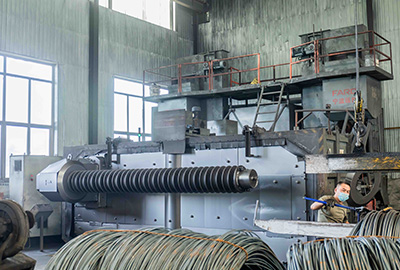lg shipping bolts exporter
Nov . 08, 2024 21:21 Back to list
lg shipping bolts exporter
Exporting LG Shipping Bolts A Comprehensive Overview
In the modern manufacturing and logistics landscape, the significance of high-quality fasteners such as bolts cannot be overstated. Among these, LG shipping bolts have carved out a reputation for excellence in various industries, including construction, automotive, and maritime. This article delves into the intricacies of exporting LG shipping bolts, highlighting their importance, characteristics, and the associated processes of international trade.
Understanding LG Shipping Bolts
LG shipping bolts are specially designed fasteners that are primarily used in shipping containers and related applications. These bolts are crafted from robust materials to withstand extreme conditions, making them ideal for securing containers during transit over land and sea. Their design often includes features that facilitate easy installation and removal, which is critical for efficiency in shipping operations.
Key Characteristics
1. Durability LG shipping bolts are known for their toughness and corrosion resistance. Most are made from high-strength steel or alloyed materials that can endure harsh environments — be it salty seawater or the varying conditions of overland transportation.
2. Customizability Depending on the specific requirements of clients and industries, LG shipping bolts can be tailored in terms of size, finish, and load capacity. This adaptability makes them a go-to choice for many engineering and construction projects.
3. Compliance and Standards Exporting LG shipping bolts requires adhering to various international standards such as ISO, ASTM, and others that ensure safety and reliability. Compliance with these standards not only ensures product quality but also facilitates smoother customs clearance.
The Export Process
Exporting LG shipping bolts involves several critical steps that ensure seamless international trade. Understanding these steps is essential for manufacturers and exporters aiming to expand their market reach.
lg shipping bolts exporter

Before venturing into exports, conducting thorough market research is vital. Understanding the demand for shipping bolts in various regions can inform pricing strategies and marketing efforts. Key markets often include North America, Europe, and Asia, where shipping industries are booming.
2. Regulatory Compliance
Every country has its own regulations regarding the importation of goods, and shipping bolts are no exception. Exporters must familiarize themselves with the legal requirements in target markets, including necessary certifications, tariffs, and customs duties. This knowledge is crucial in avoiding potential legal issues or costly delays.
3. Logistics and Shipping
Once the regulatory landscape is understood, the next step is arranging logistics. This includes choosing a reliable shipping partner and determining the best mode of transportation — whether by air, sea, or land. The choice often depends on factors such as cost, urgency, and the destination’s accessibility.
4. Packaging and Labeling
Proper packaging is essential not only for the safety of the bolts during transit but also for compliance with international shipping standards. Additionally, clear labeling that includes information about the product, weight, and destination helps expedite the customs clearance process.
5. Post-Export Activities
After the delivery of LG shipping bolts, post-export activities such as gathering feedback from clients and assessing market response are crucial for continuous improvement. Understanding clients' experiences can foster better relationships and provide insights for future product iterations.
Conclusion
The export of LG shipping bolts represents a lucrative opportunity for manufacturers willing to navigate the complexities of international trade. By focusing on product quality, adhering to compliance standards, and efficiently managing logistics, exporters can successfully tap into the global market. As industries continue to grow and evolve, the demand for reliable and durable shipping solutions will inevitably increase, ensuring a promising future for exporters of LG shipping bolts. Thus, investing in this sector not only supports international commerce but also contributes to the advancement of global manufacturing standards.
Latest news
-
High-Quality Panel Stud Bolt Reliable Panel Stud Bolt Factory & Suppliers
NewsJul.08,2025
-
High-Precision Fine Thread Locknuts Manufacturer & Supplier Custom Solutions
NewsJul.08,2025
-
PH Imperial Stud Bolt – High Strength Fasteners from Leading Supplier & Factory
NewsJul.07,2025
-
High-Quality Allen Wrench Bolts Leading Factory, Company & Suppliers
NewsJul.07,2025
-
Wholesale Ball Stud Bolt - High Quality Supplier & Factory Price Reliable Wholesale Ball Stud Bolt Company
NewsJul.06,2025
-
High-Strength Alloy Bolts Manufacturer & Supplier Quality Alloy Fasteners Factory
NewsJul.06,2025
